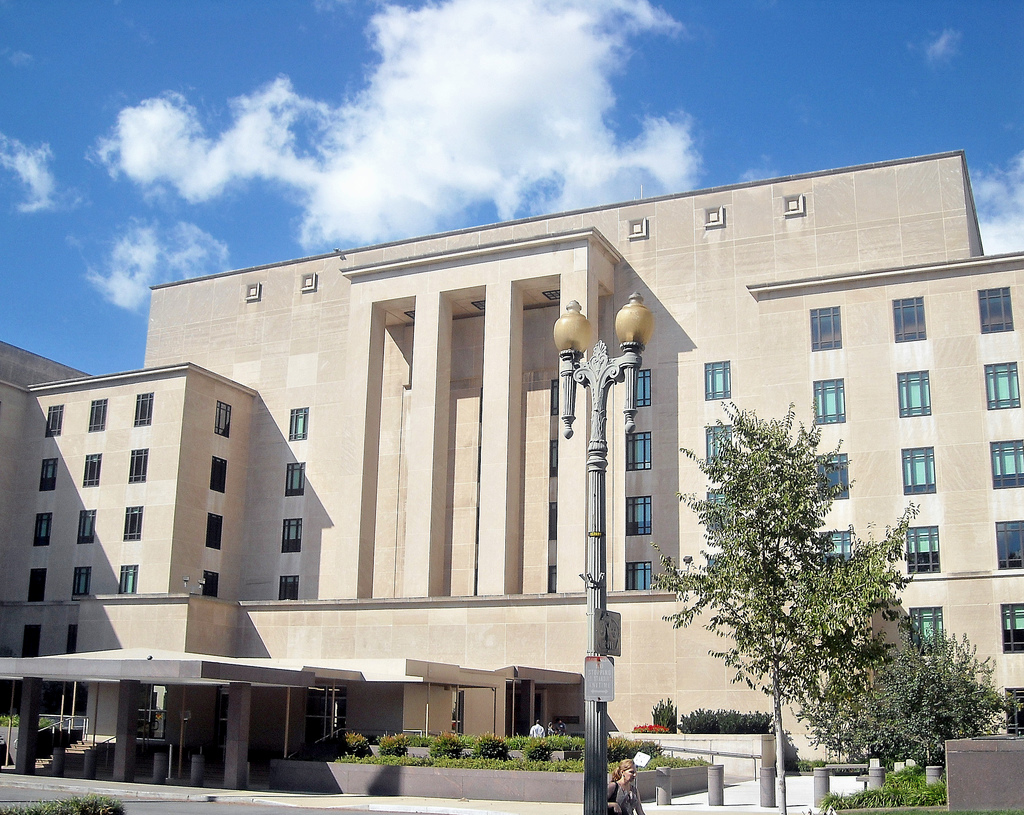
Privacy of thought and choices of expression are at stake, and it’s worth a pause for human reflection on our choice of social media technology. Image by Tumisu, of Pixabay.
By James Myers
Technology has sped up our lives so incredibly and things happen so quickly now – but it’s time to consider taking a pause. Let’s take a pause, even if it’s only for just a few minutes, for human reflection. For a machine, any minute is like any other minute, but for a creative human 60 seconds can generate the most profound ideas and world-changing actions.
Technology has such great potential to advance our shared human mission. It is such a waste of its amazing potential that technology is used as a weapon against any human being’s inherent right to privacy of thought and choice of expression. We are now about to witness another case of technology being misused, and the inherent right to be taken away from foreign students studying and living legally in the United States.
Each one of us 7.8 billion humans on Earth is born with the right to privacy of thought and choice of expression. How else we can a person differentiate between the thoughts in one’s own head from the thinking of anyone else? I know that I am me because nobody other than me has my thoughts. The inborn right belongs to every one of us, regardless of any divisions among us on questions of race, nationality, religion, age, sex, and other social differences.
Last month, on June 18, the United States Department of State announced that it will begin closely monitoring the social media activities of foreign students studying in the U.S.
To remain in the U.S., foreign students will be forced to turn off the privacy features of Facebook, Instagram, and other similar platforms, with the result that all of their online activities will be online public and tracked by the government.

The U.S. Department of State (headquarters pictured here) will be monitoring the social media activities of foreign students for, among other newly declared offences, “hostile attitudes.” Photo by AgnosticPreachersKid, on Wikipedia.
An internal message in the State Department instructed its consular officers, who review foreign applicants for study in the U.S., to begin applying, according to Reuters, “a ‘comprehensive and thorough vetting’ of all student and exchange visitor applicants to identify those who ‘bear hostile attitudes toward our citizens, culture, government, institutions, or founding principles.’ ”
The government is using technology to gather and compile data from social media in order to monitor the activities of a large number of human beings on the sole basis of their difference in nationality. Further, the algorithmic criteria that will be used to judge the difference between a “hostile attitude” and a friendly attitude are not disclosed, and might be based solely on the programmer’s own emotional attitude toward the targeted individuals.
It’s a misnomer, in any event, to call today’s platforms the government will be using to keep close tabs on foreign nationals “social” media.
So-called social media has not, by any imaginable measure, been a net benefit to the social fabric of humanity. (For further discussion on this point, see our August 2024 editorial The Real and Present Dangers of Reducing Four-Dimensional Living to Two-Dimensional Screen Projections). Without falsehoods and incitement broadcast widely on social media, would the January 6, 2021 insurrection at the U.S. Capitol, and the hostile attitudes displayed there, have occurred?

Photograph of rioters storming the U.S. Capitol on January 6, 2020. Is this the way of government of the future? Image shared by Reuters .
Social media could be a place for community-building if it were designed differently, specifically so that it is not primarily funded by advertising and does not provide a platform for bots and criminals. A truly human social media system would not provide a platform for hatred and lies to proliferate, often from anonymous and algorithmic sources, to the extent that we’re now suffering from the plague of divisiveness broadcast freely on the commercial platforms.
Until governments and citizens realize the extent of social harm being done by commercialized “social” media, there’s no reason for the current system to become any better and every reason for it to endlessly amplify the damage that’s been done so far.
Wouldn’t it be great to have a true social media platform, one that would enhance your right to privacy of thought and choice of expression? How could anyone not want that?
The technology exists for it to happen, and to keep you and me and everyone else safe from trackers and targeted advertising and inflammatory messages broadcast anonymously.
We face a crucial choice. Let’s understand what’s at stake.
We have a choice to make here, with social media technology.

Dr. Ursula Franklin (1921-2016) was a
pioneer in the philosophy of technology. Image: Wikipedia.
One option is to allow the current system to persist, grow, and metastasize, and turn us into subjects of the technology. We would be required to adapt to the technology’s specifications and comply with its outcomes, having no choice, for example, to avoid receiving the many daily broadcasts of the “social” media platform’s owner.
This is not some far-off fantasy scenario. The compulsory daily broadcasts of X owner Elon Musk are reality here, today, and now. Philosopher, physicist, and Holocaust survivor Dr. Ursula Franklin (1921-2016) called this type of technology “prescriptive.” Prescriptive technology might be quick and efficient, but it gives no options to the human user. For this reason, prescriptive technologies are favoured tools of tyrants.
The opposite choice we could make, however, is to change the system and use technology to deliver a truly social fabric-strengthening experience. Ursula Franklin called that type of technology “holistic,” because the technology adapts to the human’s needs and frees the human for creativity.
I know what I would choose. Is there any logical choice other than the holistic option?
While a pivot to holistic technology would cause a significant damage to the near-term profits of current social media platforms, in the long run it would be far more profitable to sustain themselves on a social fabric that isn’t quickly fraying and threatening to rip completely.
It seems natural that an overwhelming number of us would prefer taking the holistic route with social media because, with privacy of thought and choice of expression, history has proven us humans to be exceptionally inventive and creative. That’s the kind of future I value, far more than any quantity of money. A lousy trillion dollars doesn’t hold a candle to a creative, inventive, and happy future – one in where my thoughts are mine alone unless I choose to express them.



